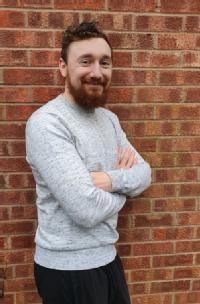Departmental news
£3.5 million donation for aspiring astronomers to reach for the stars
World-leading research by Astronomy and Astrophysics leads to an incredible £3.5 million philanthropic gift to support PhD scholarships, early career researchers and deeper research into unexplored areas.
Professorial Promotions
Congratulations to the following Physics staff on their promotion to Professor:
- Emma MacPherson
- Martin Lees
The promotions are in effect from 1 August 2021.
PhD Thesis Prize 2021
Many congratulations to Drs Elena Cukanovaite, James Gott and Samuele Ferracin, for their success in the 2021 PhD Thesis Prize competition. Elena won the Winton Prize for Astrophysics, James was awarded the Springer Thesis Prize, while Samuele is the recipient of the Faculty of Science and Department of Physics Thesis prize. Read on for more details about the prizes and their research.
Academic promotions
Congratulations to the following members of Physics staff on their promotions:
- David Brown (Senior Research Fellow)
- Aruni Fonseka (Senior Research Fellow)
- Paul Strom (Senior Research Fellow)
- David Armstrong (Associate Professor)
- Anne-Marie Broomhall (Associate Professor)
- Andrew Howes (Associate Professor)
- Elizabeth Stanway (Reader)
All promotions are with effect from 1 August 2021.
Warwick Institute of Engagement – Fellowships Update
New fellows of the Warwick Institute of Engagement have been announced! Physics is very well represented - congratulations to:
Ally Caldecote (Foundation Fellow)
Anne-Marie Broomhall (Foundation Fellow)
Aruni Fonseka (Associate Fellow)
Don Pollacco (Honorary Fellow)
Oksana Trushkevych (Associate Fellow)
Tishtrya Mehta (Associate Fellow).
They will work with the team (incl. Rachel Edwards, the Institute's Deputy Director) to deliver and promote high quality public engagement.
Sandra Chapman awarded Ed Lorenz Lecture at the 2020 Fall AGU Meeting
Professor Sandra Chapman (CFSA) awarded the 2020 Ed Lorenz Lecture for the Fall Meeting of the American Geophysical Union (AGU) – which will be one of the world’s largest virtual scientific conferences [1-17 December 2020]. The Ed Lorenz Lecture is given on topics in non-linear physics across all for space and geophysics. Lecture will explore how advances in fundamental physics can help quantify space weather risk.
PhD Thesis Prize winners
Three PhD students from the class of 2019 have been awarded prestigious prizes for their outstanding doctoral theses. George King was awarded the Winton Prize for Astrophysics, while Ben Chapman and Connor Mosley won the Faculty of Science Thesis Prize. Connor also obtained the Springer Thesis Prize, and his thesis will be published by Springer. Congratulations to all! Full story
Hubble Turns Thirty
On April 24th, 1990, the Hubble Space Telescope was launched onboard the space shuttle Discovery, and was deployed a day later into an orbit that takes it around the Earth once every 96 minutes. Located above the Earth's blurred atmosphere, Hubble has been taking countless stunningly beautiful pictures of planets, stars and galaxies that have kept us breathlessly admiring the beauty of space for the past three decades. Warwick is among Europe's most active Hubble users, and is celebrating this birthday.
Joe Lyman awarded Future Leaders Fellowship
Dr Joseph Lyman of the Astronomy and Astrophysics group is one of four Warwick academics to receive a highly-prestigious UKRI Future Leaders Fellowship in the third round of awards.
 Joe's project, titled "New frontiers in transient astrophysics: gravitational-wave multi-messenger events and exotic stellar explosions", is devoted to furthering our understanding of the changing night sky. Astrophysical transients, in the form of exploding stars as supernovae, and merging neutron stars as gravitational-wave events, are some of the most energetic events in the Universe and probe physics under conditions far beyond our capabilities on Earth.
Joe's project, titled "New frontiers in transient astrophysics: gravitational-wave multi-messenger events and exotic stellar explosions", is devoted to furthering our understanding of the changing night sky. Astrophysical transients, in the form of exploding stars as supernovae, and merging neutron stars as gravitational-wave events, are some of the most energetic events in the Universe and probe physics under conditions far beyond our capabilities on Earth.
As we don't know where or when these events will occur, the fellowship will develop and exploit the Warwick-led Gravitational wave Optical Transient Observer (GOTO) project as a discovery machine to find new and exotic transients. It will also create of a rapid network of telescope facilities to follow these GOTO discoveries, making it possible to take detailed observations almost immediately after discovery, and allowing us to open new windows in study of these extreme explosions.
Joe joins Dr Heather Cegla and Dr Benjamin Richards as Future Leaders Fellows in the Department of Physics. See https://warwick.ac.uk/newsandevents/pressreleases/ukri_fellowships_awarded_to_four_university_of_warwick_academics1 for a Warwick press release.
Astronomy at a distance: what you need to start stargazing from home
Social distancing may be keeping you at home, but that doesn’t mean you can’t be exploring the universe at the same time. Did you know that you can enter a whole world of stargazing using objects you might have around the home? There is plenty that you can discover using only the naked eye. Scientists from the Astronomy and Astrophysics Group will be showing us what you can discover in our skies over the coming weeks, with advice on how you can get involved in Astronomy without ever leaving your garden.
